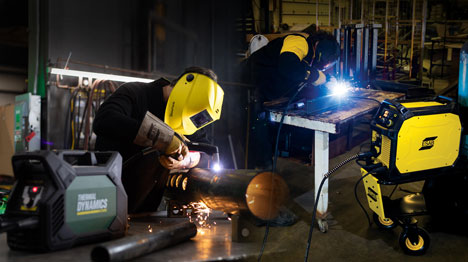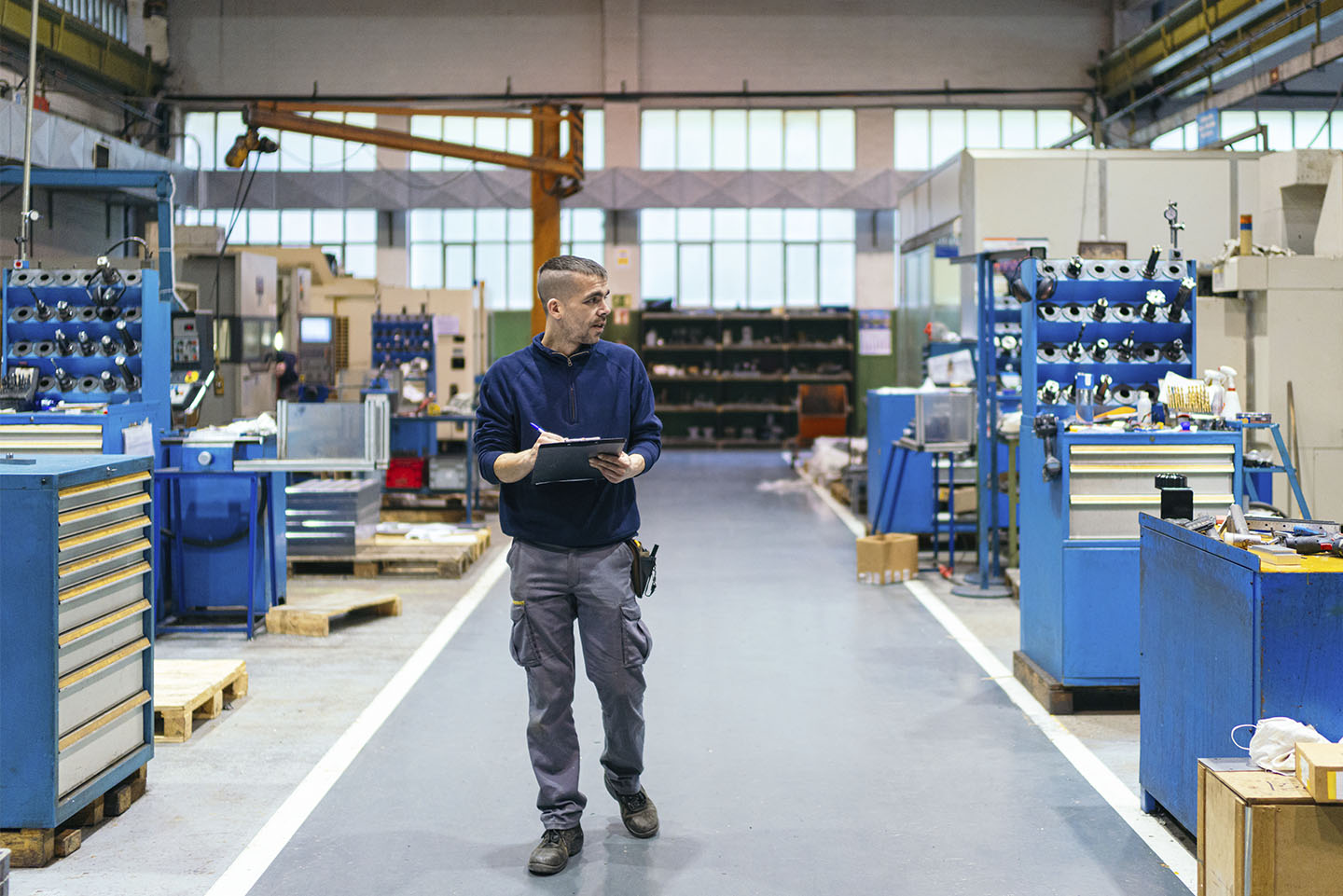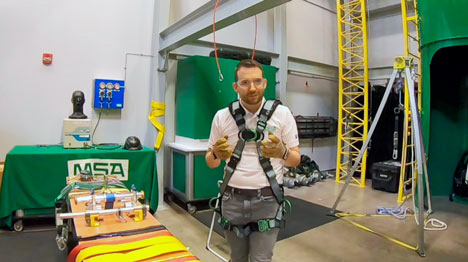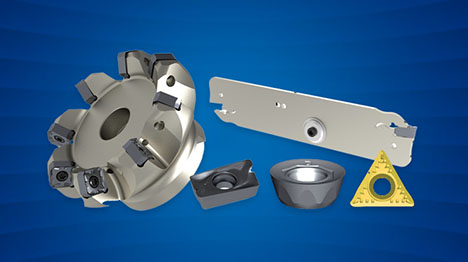What You Need to Know:
The skills gap in manufacturing is more present than ever, but its causes are often less discussed than how companies will address it.
LeanWerks’ Reid Leland says proactive community involvement is the key to building a robustly talented staff.
When the company’s primary market (oil and gas) took a hit at the end of 2014, LeanWerks had to quickly and effectively adapt its recruitment and retention strategies.
One of those strategies includes working directly with local colleges and trade schools to train and hire young talent in (and straight out of) school.
It’s no secret that a significant skills gap exists in manufacturing. Here’s one precision manufacturer’s real-world model for hiring and developing long-lasting careers for machinists, process engineers and programmers. We spoke with Reid Leland of LeanWerks.
It’s never been easy for manufacturers to acquire and retain employees. But as recent statistics reveal, that problem is slated to become even more challenging in the coming years. According to research by Deloitte and The Manufacturing Institute, an estimated 3.5 million positions in manufacturing will be available by 2025, with only 1.5 million getting filled.
The numbers don’t lie––the manufacturing industry is hard pressed for long-lasting, knowledgeable talent. But while the statistics are black and white, the reasons for the skills gap, and how companies can bridge it, live in a somewhat gray area.
Several industry leaders suggest that rapid advancements in manufacturing technology (such as robotics, automation and programming skills) alienate seasoned workers. Some have found that a lack of a female presence on the shop floor is at play and could be an untapped labor source. Politicians, including former President Barack Obama, current President Donald Trump and U.S. Senator Marco Rubio of Florida, often advocate for more trade and vocational training.
Reid Leland, president and founder of LeanWerks in Ogden, Utah, takes a straightforward, proactive approach to fostering future workers in manufacturing. LeanWerks was honored in 2015 by Modern Machine Shop as a highly regarded “Top Shop” in human resources.
“Every year, the skills gap is an issue for us manufacturers,” Leland explains. “Regardless, we have to take responsibility for our workforce. We can’t make excuses for not having good people––we have to be active in our communities, helping to grow and attract talent.”
We sat down with Leland to discuss how he and his team approach recruiting and retention, and ways other companies can mimic those strategies for their own shops.
Tell us about LeanWerks. What industries does your business focus on?
Leland: We are a precision manufacturer that focuses on repeat production of mission-critical parts and assemblies. While we are attempting to spread our work further, at the current moment we build parts for oil and gas, aerospace and defense, motion control, medical and automotive industries.
What led your primarily gas and oil-fueled business to venture into other industries?
Leland: In 2007, we received our first job with a company in Texas in the oil patch. We really grew from there and became concentrated in the oil and gas industry through 2014, growing to 60 people. At the end of 2014, there was almost no work in the oil and gas industry. In an effort to innovate our business model, we started venturing into aerospace and precision manufacturing companies, growing slowly but surely into 2017.
When you shifted focus to those other industries, how did you acquire––and retain––fresh talent to work with the new equipment?
Leland: Naturally, it was a fairly large jump from the oil and gas industries to aerospace and other industries. And it wasn’t just a matter of understanding the new types of pieces we’d be working with … From a technical standpoint, [it was also about] understanding the new materials and general requirements and certifications that we needed. It was a big challenge. Of course, we made a push to hire folks who had experience who knew how to make these aerospace parts. But the bigger part was undoubtedly cultural.
We had to make sure we were creating a culture that was collaborative, engaging and respectful in doing the little things that support and build a community. There has to be more than a get-it-done mentality for workers to focus on––there has to be a why. We try to ensure our associates understand the bigger picture in relation to their job. Talented machinists have a lot of options right now and can work anywhere they want. It’s important that we do our part to keep them here.
Aside from those employees tenured in aerospace, defense and automotive work, how does your team recruit younger workers?
Leland: I work with Weber State University in Ogden in their manufacturing and mechanical engineering programs as a department advisor. We recruit interns from that university and have had a tremendous amount of success from that endeavor––many graduates work here now.
I also participate in UCAT, or the Utah College of Applied Technology for trade schools. We’ve often hired kids straight out of those programs. The Northern Utah Chapter of the National Tooling and Machining Association, of which LeanWerks is a member, won a $150,000 workforce development grant three years ago to implement an apprenticeship program. Half of that money went toward a marketing campaign targeting students, including the website machineutah.org.
Kids will often see ads from that campaign and visit the site to learn about becoming an apprentice. It’s a highly effective recruitment method. There are numerous chapters around the country participating in similar types of programs. It’s like a bank––you get out what you put in. If a shop is trying to grow their business, they need to be involved in their communities and attracting talent.
What kind of training does your apprenticeship program entail?
Leland: Our apprenticeship program starts at a new-hire level, which then progresses into operator, senior operator and so on, and there are 10 levels that go all the way up to senior process engineer. But between each step, there’s a skill development assignment that the individual has to demonstrate proficiency in … The curriculum supports skill development from one stage to the next.
Was that training program developed in-house or outsourced?
Leland: A little bit of both. Some of the training for our engineering positions comes from Tooling U-SME, ASQ [American Society for Quality] and other online learning programs. Tapping into those programs helps to ensure that we’re using a body of knowledge that is accepted and distributed industrywide. When training for positions that are less senior, we tend to develop our learning programs internally through a video- and web-based system consisting of about 200 five-minute videos, and we also tap into available content from our suppliers (such as MSC) on tooling or from NTMA-U on machining fundamentals.
Those videos cover everything from filling out an inspection report to general shop matters. We used interns from Weber State’s videography department to make the videos, so they look great with highlights, voice-over and special effects to emphasize the points we are training.
How have new machining technologies and approaches affected your business?
Leland: Back before 2014, we were buying one new major piece of equipment per year from the beginning. It was great for retention––our team loved handling the new materials. Then the bottom fell out of our main market, and we had to really scramble to survive. It was a battle, and we barely made it through.
That being said, my biggest piece of advice for manufacturers in regard to technology is to not get so leveraged. Though we could certainly afford a new, techy piece of equipment, this industry is based on ebbs and flows. When it’s ebbing and you have a pile of debt, you can get into a pinch. My advice: Be careful and don’t overextend.
What do you think is in store for U.S. manufacturing?
Leland: On the whole, things look good. Of course, I’m no pundit––and in this business, you have to be at least a little bit paranoid … We’ve seen more attention being paid to additive manufacturing. Companies are increasingly embracing these so-called disruptive technologies. Everything is evolving, but in terms of precision machining and manufacturing in America, I think we’re on pretty solid ground. The future is bright; you just have to watch out for the pitfalls.
Related Articles

Selecting the Best Welding and Cutting Equipment: What You Need to Know

Total Cost of Ownership: Why it Matters More Than Ever in Metalworking and Machining

Virtual Safety Training: How MSA Uses Technology to Safeguard Your Workers

Gas Detection and Connected Platforms: MSA’s Safety Tech of the Future


